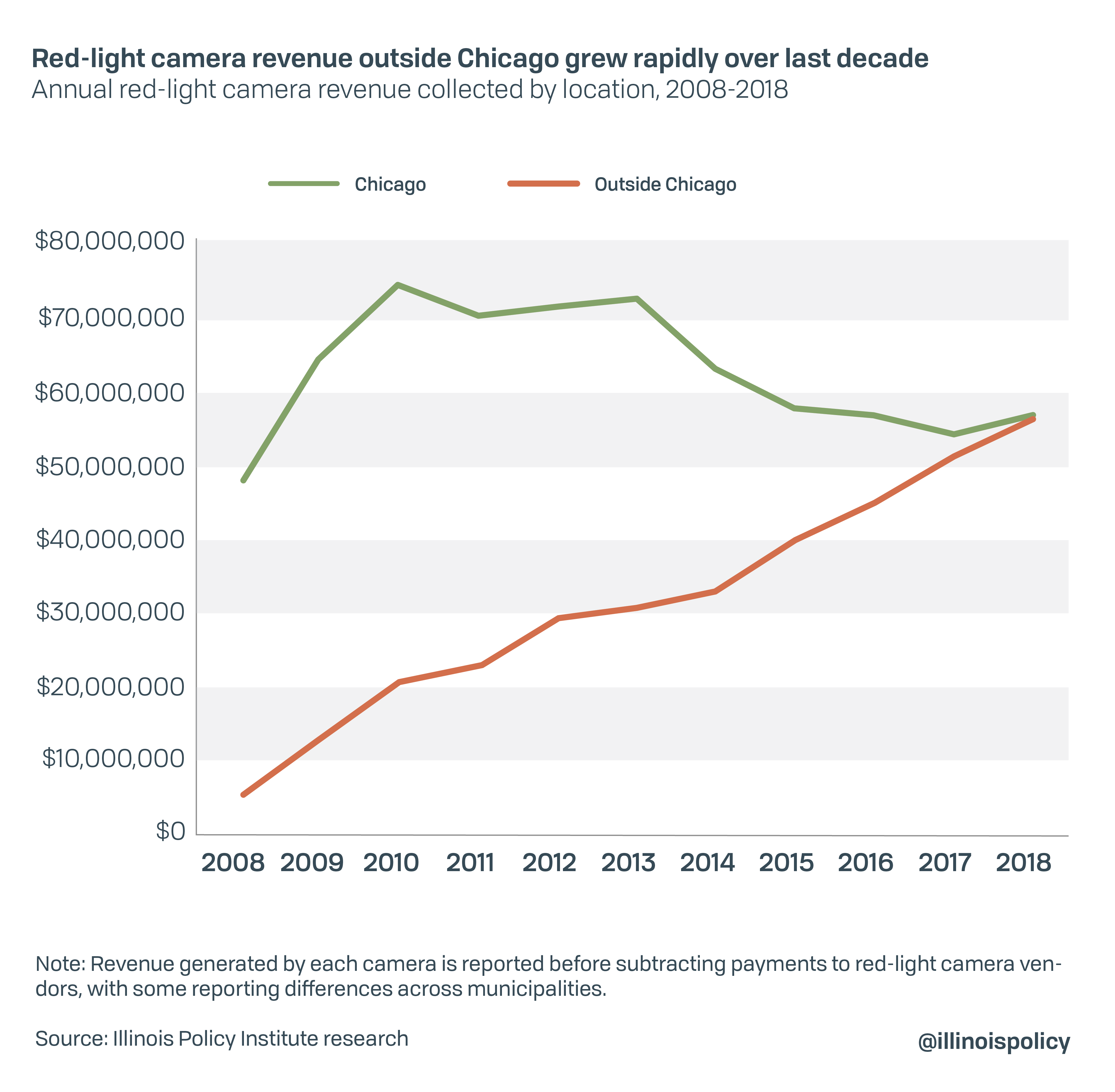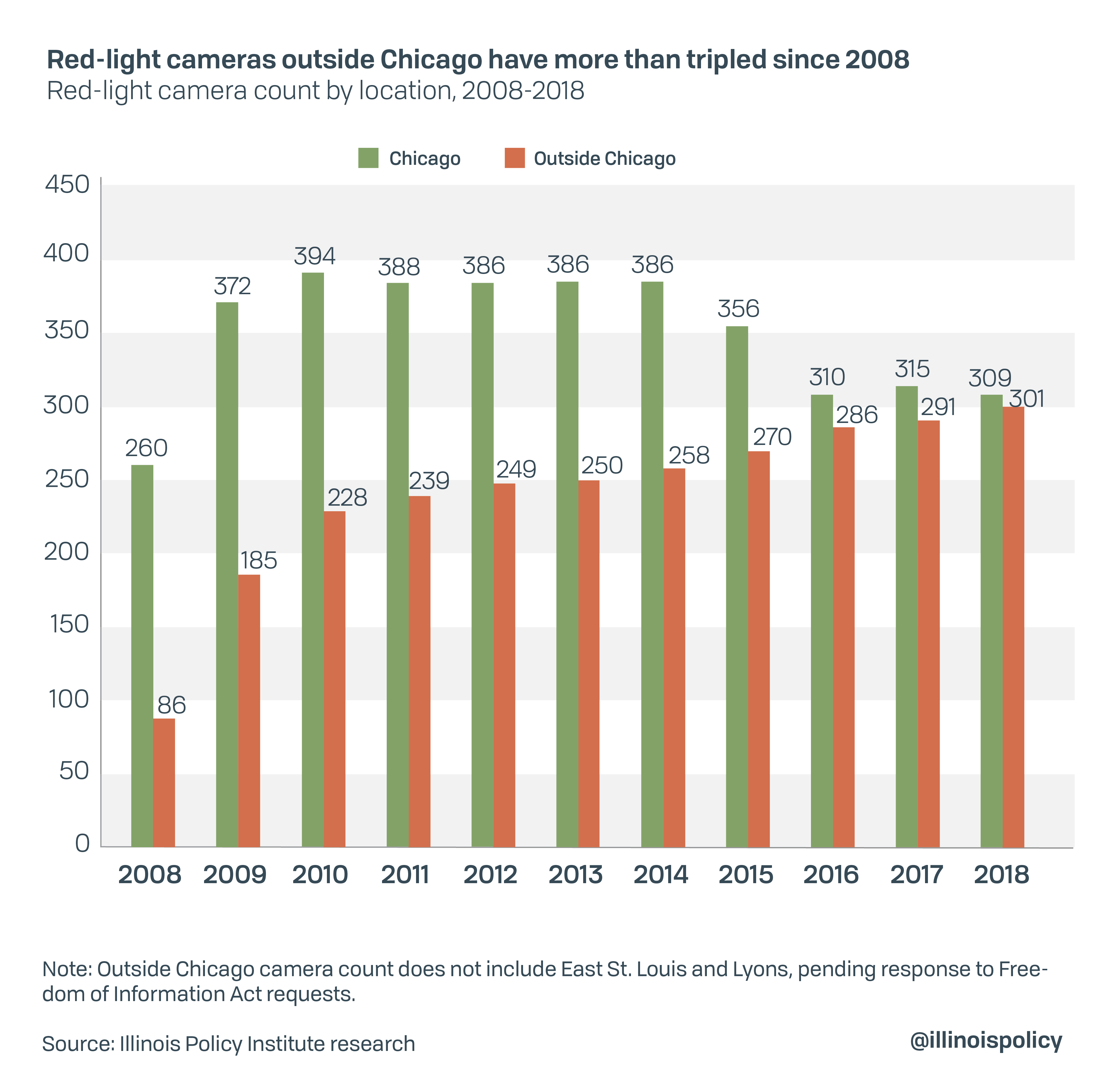Red-light camera backlash gains bipartisan momentum in Springfield
Driver headaches and corruption flow from red-light cameras. Two bills with bipartisan support would ban the traffic devices in Illinois.
As a red-light camera company becomes a focal point in another federal investigation of Illinois government corruption, a growing number of state lawmakers have revived efforts to unplug the controversial devices.
Two bills introduced in the Illinois General Assembly this year would impose a statewide ban on use of red-light cameras. The first was House Bill 323, which state Reps. David McSweeney, R-Barrington Hills, and Jonathan Carroll, D-Buffalo Grove, filed in January. On Oct. 4, state Reps. Rita Mayfield, D-Waukegan, and Sam Yingling, D-Grayslake, signed on as chief co-sponsors.
On Oct. 7, state Reps. Grant Wehrli, R-Naperville, and Mark Batinick, R-Plainfield, introduced House Bill 3909. State Rep. Margo McDermed, R-Mokena, recently added her name to the proposal.
Both bills would explicitly forbid any municipality from enacting or enforcing an ordinance that involves the use of red-light cameras.
An analysis by the Illinois Policy Institute released Oct. 14 found Chicago and other local governments across Illinois have banked over $1 billion combined between 2008 and 2018, and that the presence of red-light cameras outside Chicago has increased threefold during that time.


Depending on the municipality, a ticket from a red-light camera can cost an Illinois driver up to $100.
Debunked devices
The expansion in red-light camera programs – and the revenue municipalities have generated from them – have continued despite research casting doubts that they improve public safety. At least one study has found evidence the devices make intersections less safe, increasing rear-end collisions from abrupt stops encouraged by the cameras.
A 2017 Chicago Tribune investigation found more than half of the intersections for which the Illinois Department of Transportation, or IDOT, approved local camera permits rated among the safest in the department’s own studies at the time of approval.
The growing presence of red-light cameras across Illinois has also coincided with the disappearance of the devices elsewhere. About 340 communities nationwide were using red-light cameras as of October 2019, according to the Insurance Institute for Highway Safety. That’s a significant decrease from their peak in 2012, when about 540 communities operated red-light cameras.
Thirteen states have passed laws prohibiting red-light cameras in some capacity, according to the Governors Highway Safety Association. Outside Illinois, local governments have increasingly discarded red-light cameras in response to the diminishing credibility of the devices and of their vendors.
Corruption in focus
On Oct. 11, state Sen. Martin Sandoval, D-Chicago, resigned from his role as chairman of the Senate Transportation Committee after the Illinois Senate released an unredacted search warrant the FBI served Sept. 24 before raiding his Springfield office. The warrant showed agents sought information on red-light camera company SafeSpeed LLC, a longtime political donor to Sandoval, among other individuals and companies. Federal authorities raided Sandoval’s home and Cicero office the same day.
CEO Nikki Zollar founded SafeSpeed in 2007 after serving as director of the Illinois Department of Professional Regulation in ex-Gov. Jim Edgar’s administration.
SafeSpeed and its executives have for years contributed mightily to Sandoval’s political war chest, and the former transportation committee chair has a history of intervening on the company’s behalf in IDOT’s review of local governments’ red-light camera applications.
The Sandoval raids coincided with similar raids on the suburban villages of Summit, which maintains a contract with SafeSpeed, and McCook, whose mayor doubles as a Cook County commissioner, a role in which he employs a paid SafeSpeed consultant.
Federal authorities on Oct. 7 subpoenaed the supervisor of Worth Township, who is also a consultant for SafeSpeed and was formerly a state lawmaker, in a case involving the neighboring village of Crestwood over its red-light camera program. Crestwood’s mayor in August received $1,000 in political contributions from the Worth supervisor’s consulting company, according to the Chicago Sun-Times.
In Chicago, home to the nation’s highest count of red-light cameras, a former high-ranking transportation official in 2016 was convicted by a federal jury on 20 counts of mail and wire fraud, bribery, extortion, conspiracy and tax evasion charges. The jury found the official accepted hundreds of thousands of dollars in cash and perks from Redflex Traffic Systems Inc. in exchange for helping the company win and maintain city contracts for its red-light camera system.
The following year, the city settled for nearly $40 million after a class-action lawsuit alleged the program violated motorists’ due process rights. A more recent class-action lawsuit alleges the program fails to satisfy a number of state law requirements, rendering the program “unconstitutional.”
Hitting the brakes
Red-light camera programs subject drivers to unfair ticketing practices, and saddle them with excessive financial burdens. The result is diminished trust in local government and in a state government already sorely lacking it.
Illinois has failed to follow the rest of the nation as it moved away from the devices. As a sweeping corruption investigation continues to shed an unpleasant light on Illinois politicians and the role of the camera companies, Illinoisans should welcome the bipartisan push and state lawmakers should take this opportunity to halt red-light camera use in Illinois.
Sign the petition
Ban red-light cameras
Sign the petition below to support a statewide ban on red-light cameras in Illinois.
Learn More >